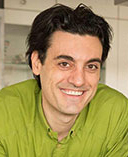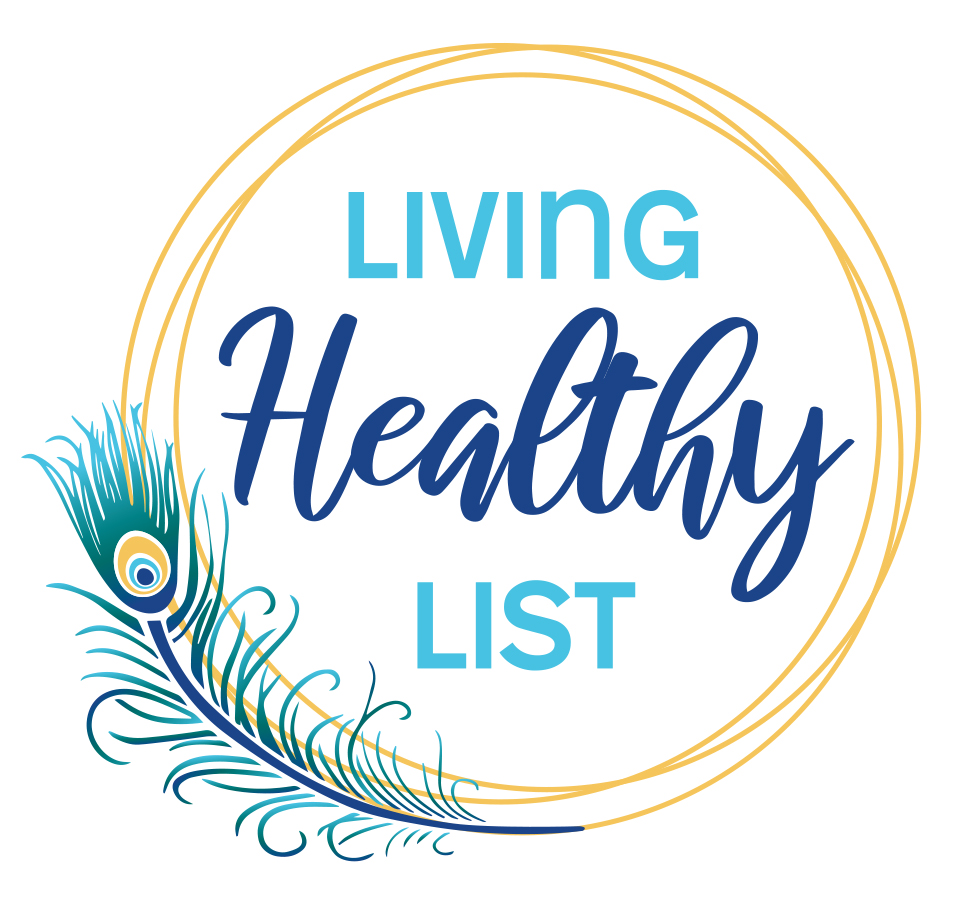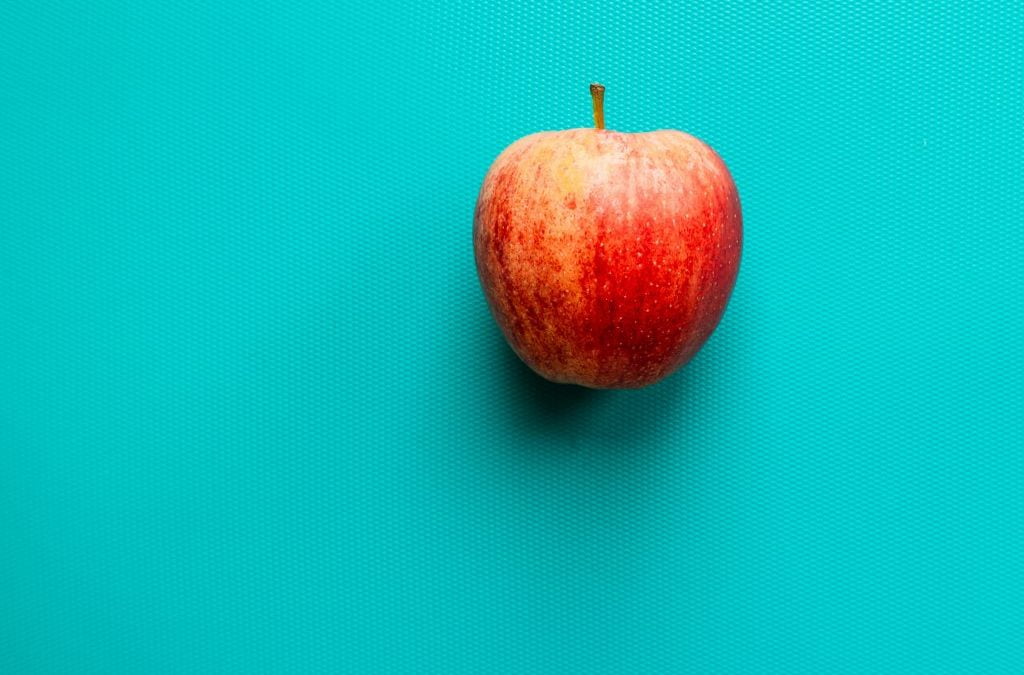You’ve heard the phrase an apple a day keep the doctor away, correct? It’s common knowledge that eating a diet full of fruits and vegetables promotes optimal health. What if that apple is the key to better sexual health? Could it be that simple? Is better sexual health only an apple away?
Let’s explore.
Tom is 45-years old. He is married with two children and has a good job. He has never been the athletic type and for as long as he can remember he’s been a few pounds overweight.
In the past ten years, his life has progressively become more sedentary. With two children and a job that is increasingly more burdensome, the available time he has to train or d participate in sports shrank to almost nothing.
When it comes to eating a healthy diet, both Tom and his partner would love to behave as role models for their children; however, its difficult to find the time to cook every day and, more often than not, what ends up on the table is not exactly what doctors recommend.
The last time he saw a doctor, Tom was diagnosed as clinically obese which explains the chronic pain, shortness of breath, and other symptoms that he has been experiencing. Though, in particular, Tom has noticed that his sex life has become, with time, less enjoyable. Most worryingly, though, he started to suffer from erectile dysfunction (ED). Could better sexual health only an apple away?
If this story sounds familiar to you, there is one thing you need to know.
You are not alone
Although most men never talk about it, 30% to 50% of men above the age of 40 have erectile dysfunction, and their number is likely to surge to an astonishing 300 million cases worldwide by 2025.
Sexual function impairments come at a high cost. You have a negative perception of your body image which diminishes your self-esteem. Consequently, your interpersonal relationships are then negatively affected, and in general, your physical health gets worse.
That’s not all. Obese men also have lower testosterone levels, almost half the circulating levels observed in normal-weight men. Being obese is one of the most common predictors of the need for testosterone replacing therapy.
Testosterone levels have been declining over the past decades which correlates to lower bone density which may lead to osteoporosis. Low levels of male hormones often accompany another sexual dysfunction called “hypogonadism”, a complicated word that defines a decreased functionality of sexual glands. Five million American men today suffer from hypogonadism and reduced testosterone levels.
There is Hope!
When overweight and obese men start a low-calorie diet their testosterone levels go up! A healthy diet is only one of the many lifestyle factors that are related to sex. Maybe better sexual health is only an apple away!
Smoking, physical activity, alcohol, and substance use can all affect men’s sexual health (Mollaioli et al., 2020).
Healthy lifestyle modifications can improve erectile dysfunction as well, likely through a reduction of inflammatory markers which improves endothelial cell function. (Sullivan et al., 1999; Derby et al., 2000).
Studies showed significant decreases in inflammatory markers in men who underwent healthy dietary changes, in association with substantial improvements in reported erectile dysfunctions.
On the contrary, a typical Western diet, rich in red and processed meat, high-sugar foods, dairy, refined grains, salt, can increase inflammation levels. My suggestion is to eat real food!
What can you do?
If your body mass index ( BMI) is greater than 25, this means you are formally overweight, unless your weight is due to an excess muscle mass.
The most important thing you can do to improve your sexual function if you are overweight or obese is to lose weight. Although nothing can replace getting help from an experienced dietician or nutritionist, here are ten tips to start losing weight now:
Cut out sugar.
Reduce the number of sweet treats to a maximum of 2-3 per week. If you have a piece of chocolate or something sweet at the end of each meal, replace it with one piece of fruit. Look at the labels of the products you buy and choose those which do not list sugar or syrups among their ingredients. Yogurt, breakfast cereals, pasta sauces, and even balsamic vinegar are all frequently sugar-added. Buy the natural version instead.
Are you really hungry?
Before you eat, ask yourself if your hunger is real. Most of the time, we feel hungry; we just need to get distracted and to relax our brain by focusing on something that soothes us. Listen to some relaxing music, watch a video that makes you laugh, or simply call your funniest friend. All these activities will make your fake hunger disappear.
Stop eating when you are full.
It seems like obvious advice, but it is not. Most people continue to eat until they have eaten up everything they have on their plate. The good news is that you don’t need to throw this food away, some smart people invented both refrigerators and freezers a lot of time ago! I’m sure you have both of them at home.
Add More Veggies
Replace half of your usual portion of the most caloric foods (rice, pasta, meat, etc.) with double the amount of vegetables. Instead of a 200 g beef fillet with no greens, have a 100 g with 200 g of veggies. And don’t forget better sexual health is only an apple away. And some spinach, too!
Choose healthy snacks.
Nuts are excellent sources of minerals and healthy fats, and they are also able to make you feel full. Have a handful or two during the day will help you keep your (real) hunger at bay.
Move more.
Stop using elevators, get off the bus one stop earlier, or walk the longest way every time you need to go from one point to another. These tricks will help you exercise a bit more.
Just Get Started.
Download an app for exercising 7-minute a day. Although it doesn’t seem much, it’s an excellent way to get started with some training you can do at home.
Always keep fruit and vegetables in your fridge.
Order them online if you don’t have the time to go to the local supermarket. You can also have a box of groceries delivered to your door every week if you want. Start each meal with a bowl of vegetables and conclude it with a piece of fruit, which will work as a small dessert. By doing this, you will end up eating half of the portion you usually have of your main meal. Keep in mind…Better sexual health is an apple away!
Drink water more often
Put larger glasses on the table and keep a bottle full of water on your desk will help you achieve this goal. The recommendation is to drink half of your body weight in water. If you do drink alcohol drink one glass of water for each alcoholic drink you have.
Find a Friend.
See if you can find a friend who is also trying to lose weight and partner with him or her. You can go walking together, exchange tips, and maybe visit the same nutritionist together. You will benefit from “sponsoring” each other.
By implementing each of the techniques described above, you will be able to lose weight during the upcoming weeks. I have given the same advice for many years to hundreds of clients, and they have been able to lose up to 20 kg ( which is approximately 44 lbs) and improve their sexual function. If you are clinically obese work closely with your health care provider.
Wait there’s more!
Another issue that is important is to reduce the level of inflammation in your body which is a common mechanism in atherosclerosis. Often an anti-inflammatory diet is recommended to help to prevent heart disease.
Luckily, the same diet works well for improving erectile dysfunctions, since it is also connected to higher levels of inflammation. Not to mention that healthy blood vessels can help improve this problem and improve your sexual health.
There are several things you can do to reduce inflammation
- reduce alcohol use a
- lose weight
- stop smoking
- exercise
Tips to reduce inflammation and improve sexual health
- Omega-3’s found in cold water fish are known to be anti-inflammatory so eat wild salmon or Arctic Char a few times per week.
- Choose fruit and vegetables of different colors
- Increase the amount of fiber you eat by adding wholegrain cereals, legumes, and plenty of fruit and vegetables for better gut health.
- Avoid processed food especially meat like cold cuts and sausages
- Coffee and tea (especially green tea) are rich in bioactive compounds that will boost your immune system and reduce your inflammation levels.
- Avoid sweet drinks
- Try a smoothie made with vegetables and a little fruit.
- Brazilian nuts are rich in selenium and will improve your thyroid function
- Use extra-virgin cold-pressed olive oil as the primary source of fat for cooking and as a salad dressing.
- Avoid spirits but a glass of red wine occasionally is OK.
- Add freshly-chopped herbs (parsley, marjoram, thyme, etc.)
With all the advice in your pocket, I think you are now well equipped to start your new life, improve your health, and enjoy a better sexual life as well. Improving your sexual health may not be an apple away, but having more fruit and veggies will help!
About the Author
Gianluca Tognon, the founder of the Swedish company“The Food Scientist” and Associate Professor in public health at the University of Skövde (Sweden), is an expert in public health, nutrition, and food science. Gianluca has worked for several years as a researcher in public health and nutrition in both Italy and Sweden. He has collaborated with private companies, schools, organizations, and coached hundreds of men and women to help them lose weight by eating a healthy diet. Gianluca has presented at several conferences and events in Europe and the USA.
More information about Gianluca is available at  www.gianlucatognon.com/about.
www.gianlucatognon.com/about.
References
Afshin, A. et al. (2017) ‘Health effects of overweight and obesity in 195 countries over 25 years’, New England Journal of Medicine. Massachusetts Medical Society, 377(1), pp. 13–27.
Aytaç, Mckinlay and Krane (1999) ‘The likely worldwide increase in erectile dysfunction between 1995 and 2025 and some possible policy consequences’, BJU International. John Wiley & Sons, Ltd, 84(1), pp. 50–56.
Derby, C. A. et al. (2000) ‘Modifiable risk factors and erectile dysfunction: Can lifestyle changes modify risk?’, Urology, 56(2), pp. 302–306.
Esposito, K. et al. (2004) ‘Effect of lifestyle changes on erectile dysfunction in obese men: A randomized controlled trial’, Journal of the American Medical Association, 291(24), pp. 2978–2984.
Esposito, K. et al. (2006) ‘Mediterranean diet improves erectile function in subjects with the metabolic syndrome’, International Journal of Impotence Research, 18(4), pp. 405–410.
Jasuja, G. K. et al. (2017) ‘Who Gets Testosterone? Patient Characteristics Associated with Testosterone Prescribing in the Veteran Affairs System: a Cross-Sectional Study’, Journal of General Internal Medicine. Springer New York LLC, 32(3), pp. 304–311.
Khoo, J. et al. (2011) ‘Comparing effects of a low-energy diet and a high-protein low-fat diet on sexual and endothelial function, urinary tract symptoms, and inflammation in obese diabetic men’, Journal of Sexual Medicine. Blackwell Publishing Ltd, 8(10), pp. 2868–2875.
La, J., Roberts, N. H. and Yafi, F. A. (2018) ‘Diet and Men’s Sexual Health’, Sexual Medicine Reviews, 6(1), pp. 54–68.
Mollaioli, D. et al. (2020) ‘Lifestyles and sexuality in men and women: The gender perspective in sexual medicine’, Reproductive Biology and Endocrinology. Reproductive Biology and Endocrinology, 18(1), pp. 1–11.
Sullivan, M. E. et al. (1999) ‘Nitric oxide and penile erection: Is erectile dysfunction another manifestation of vascular disease?’, Cardiovascular Research. Oxford Academic, pp. 658–665.


